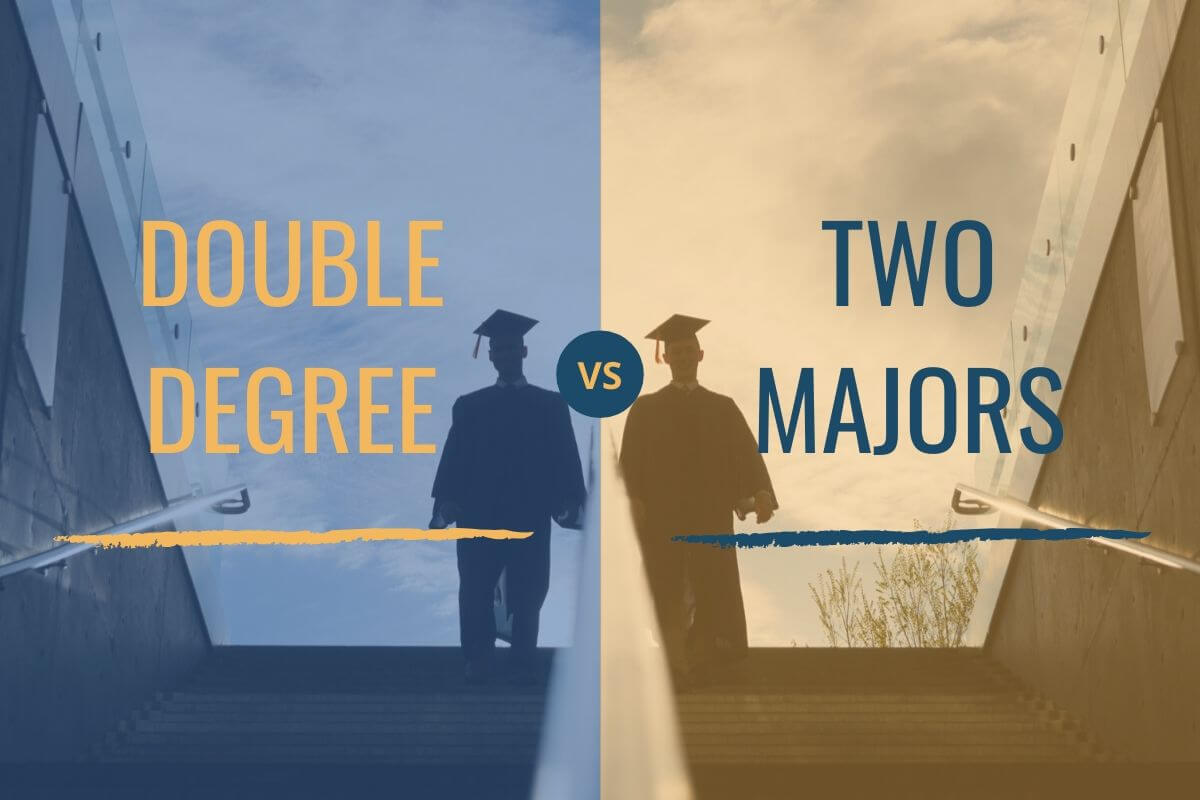
Double Majors-Understanding if it is the Right fit for you.
Starting college comes with many important decisions, and one question you might find yourself facing is: Should you pursue a double major?
Double majors have grown in popularity because they offer a deeper understanding of two distinct fields. In one of the recent surveys, The impact of double majors during economic downturns researchers analysed the dataset, with data from 2009 to 2019, and found that 10 percent of the 145,826 participants had double majors. “Among all double majors in the surveyed group, 70 percent chose unrelated fields. According to the authors, the advantage of double majors appears to be that they have more diverse skills and knowledge sets.” It can therefore surely increase your employability in an extremely competitive job market leading you to higher-paying roles. However, students must be fully aware that this sort of degree involves more coursework and a busier schedule.
This blog will help you understand all you need to know before you decide if double majoring is right for you.
Double Majors vs. Dual Degrees
A double major means earning one degree with two specializations — for example, a Bachelor of Arts in Psychology and Sociology. Both majors usually belong to the same academic department.
A dual degree, on the other hand, results in two separate degrees. For instance, the University of Pennsylvania’s Huntsman Program awards a B.A. in International Studies from the School of Arts and Sciences and a B.S. in Economics from the Wharton School.
How Do You Double Major?
Completing a double major within four years requires understanding how course credits work. Typically, a bachelor’s degree requires around 120 credits, divided into:
- 40 general education credits
- 40-50 major requirement credits
- 30-40 elective credits
Double majors often use elective credits to fulfill requirements for the second major. If the majors are related, some courses may count toward both — though many schools limit this overlap.
Colleges provide academic advisors to help you navigate the process, ensuring you stay on track. Advisors might be senior students, graduate students, or faculty members.
If you choose to double major, most schools require you to submit paperwork formally declaring your majors and outlining a plan. Some may also ask for a statement of purpose explaining your motivation.
Should You Double Major?
The decision to double major is significant and requires careful thought. Let’s break down the pros and cons:
Pros:
- Demonstrates motivation, diligence, and perseverance.
- Provides expertise in two fields, broadening your skill set.
- Enhances job market appeal and may lead to higher salaries.
Cons:
- Limits space for electives or exploratory classes.
- This leads to a more demanding junior and senior year, often involving two capstone projects or theses.
- This can result in lower grades due to the increased workload.
- Offers no guarantee of better career prospects or salaries.
It’s best to decide early in your college career to meet requirements within four years. Otherwise, you may face additional time and tuition costs.
Popular Double Major Combinations
A 2012 report by the Teagle Foundation highlighted these popular pairings:
- Business and Business (two business-related majors)
- Foreign Language and International Studies
- Foreign Language and Political Science
- Economics and Mathematics
- Economics and Political Science
- Foreign Language and Biology
- Foreign Language and Economics
- Foreign Language and Business
- Economics and Engineering
- Foreign Language and Psychology
According to a 2008 article in The Economics of Education Review, students majoring in education, social science, or business administration are more likely to pursue a second major. Additionally, over 10% of double majors include a foreign language.
Strategic combinations — like Business and Communication or Psychology — can be especially valuable, as employers often cite communication skills as a key weakness among new hires. A creative student might pair Art with Business to gain marketing skills, potentially turning their passion into a career.
The Bottom Line
Before committing, reflect on why you want to double major. If it’s purely about exploring two interests, you might satisfy that curiosity through electives instead.
Ask yourself:
- Am I a highly motivated student?
- Am I willing to give up easier electives, social time, and sleep to succeed in both majors?
- Will this double major directly support my long-term career goals?
If you’re unsure about the last question, sticking to one major may be the smarter path. Double majoring can be rewarding — but only if it truly aligns with your aspirations and abilities.






